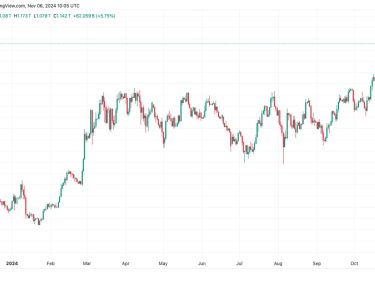MegaLabs, the main developer firm behind a new Ethereum scaling protocol designed to be so fast it’s considered “real-time,” announced Thursday that it has raised $20 million in a seed round led by Dragonfly Capital.
The round also saw participation from Figment Capital, Folius Ventures, Robot Ventures, Big Brain Holding, Tangent and Credibly Neutral, and included angel investors such as the co-founder of Ethereum Vitalik Buterin, CEO of Consensys Joseph Lubin, creator of EigenLayer Sreeram Kannan, and Hasu of Flashbots.
The fresh round of capital will go towards building out the MegaETH protocol, with the aim of having a testnet go live in the next few months.
MegaETH calls itself a “real-time blockchain,” meaning that it focuses on the speed of processing transactions, with plans to stream “100,000 transactions per second with millisecond-level responsiveness.”
“We define a real-time blockchain to be a blockchain that can process transactions as soon as they arrive,” said Yilong Li, co-founder of MegaLabs, in an interview with CoinDesk. “Then you produce the resulting outputs at a very high frequency.”
According to a press release, MegaETH achieves its scaling in two ways: through its “heterogeneous blockchain architecture, which boosts performance by allowing network nodes with different hardware configurations to specialize on specific tasks,” as well as a “hyper-optimized EVM execution environment that pushes throughput, latency and resource efficiency to hardware limits.” An EVM execution environment is a blockchain operating system compatible with Ethereum’s programming standard.
The idea of MegaETH was partly inspired by Buterin’s 2021 blog post, titled “Endgame,” where he addresses scaling Ethereum.
“Creating hyper-scalable EVM implementations is a key prerequisite for truly scaling Ethereum,” Buterin wrote in a message about MegaETH, forwarded by a MegaLabs representative over Telegram. “I am excited to see brilliant developers taking on this challenge.”




